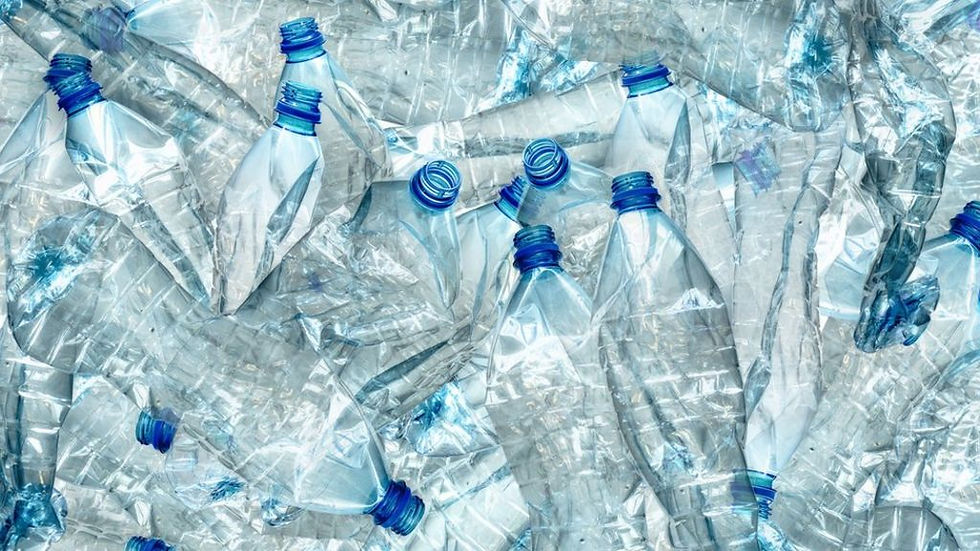The plastic pollution problem should have never been shifted to consumers
- Sea Sense Flip Flops
- Mar 13, 2021
- 3 min read
Updated: Mar 14, 2021

It is 2021, and the world is focussed on the rhetoric that "the small acts of people can make a huge difference". The small act of washing your hands can save a life. The small act of using public transport instead of your car can protect the environment. The small act of recycling plastics can save our oceans.
Not to burst the bubble of a society behaving conscionably, but recycling plastic is to protecting the Earth, what frantically adding some sticky tape is to stopping a collapsing bridge. Your effort is wholly inadequate and distracts from the real problem of why the bridge is collapsing in the first place. The real problem is that championing single-use plastic (the notion of producing items like shopping bags, which we use for an average of 12 minutes but can persist in the environment for 500 years) is incredibly dangerous and encouraging consumers to recycle more will never solve the problem of a massive production of single-use plastic.
Through our work in conservation, we have had a disturbing window into the accumulating literature on the hazards of plastic pollution. The scientific community has long recognised that plastics biodegrade slowly, if at all, and pose multiple threats to wildlife through entanglement and consumption. More recent reports highlight dangers posed by absorption of toxic chemicals in the water. Plastics also accumulate up the food chain, and studies now show that we are likely ingesting it ourselves in seafood.
Over the past 20 years we have been bombarded by recycling initiatives. But take a moment to think, where have these recycling campaigns come from, and who do they benefit? We all know the dangers of plastics, therefore if the issue was consumer led, we wouldn't be on a course that will see more plastic than fish in our oceans by 2050. Large multinationals have helped shift the public focus to consumer recycling behaviour and engage individuals to take great responsibility for improving their local community environments, whilst carrying on, business as usual.
We are not waging a personal vendetta, but Coca-Cola is one of the world's biggest producers of plastic waste and in a recent address at Davos 2020 it was confirmed that they will not ditch single-use plastic bottles. Their Head of Sustainability, Bea Perez, stated that this was because "consumers still want them" and that "customers like them because they reseal and are lightweight". Again, this has shifted the blame of the plastic problem to consumers. I have no doubt that, as the world's most popular soft drink, consumers would drink Coca-Cola in whatever vessel it was presented to them in.
Effectively, as consumers, we have accepted individual responsibility for a problem we have little control over. We can swim against this plastic stream with all our might, but we will ultimately fail to make much headway.
We must reject the lie that is pushed on us by governments and corporates; consumers are not responsible for the global ecological disaster of plastic. We can only function to the best of our abilities, given time and priorities at any given time. Our catastrophic problem with plastic, is the result of permissive governments that have allowed the uncontrolled rise of plastic pollution, despite clear evidence of the harm it causes to local communities and the world’s oceans.
The global population is too high and there is already too much plastic to continue to ignore the big problems in front of us. It is time to stop blaming consumers for our global plastic crisis and it is time for us to demand a better system.
Even though there is only so much impact that our small acts can achieve, we should keep on doing the best we can, however we can. Recycling is going to reduce our dependence on extracting fossil fuels to produce more plastic, and every plastic bottle you recycle will at least delay plastic entering our oceans, which can only be a good thing. The heartbreaking fact is, that every time we do our bit to help make a difference, we are advocating every organisation that prioritises profit over our planet, and continues to produce plastics.
As part of our personal crusade to reduce plastics entering our oceans, we launched a brand of 100% biodegradable flip flops. Flip flops are the world's most popular shoe and 25% of all ocean plastics is made up of them. We want to give people a plastic free alternative when they are next looking to add to their wardrobe. We are Sea Sense Flip Flops.



Comments